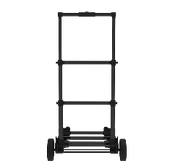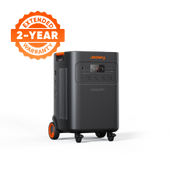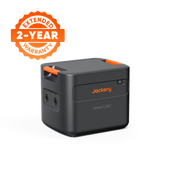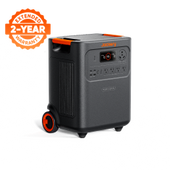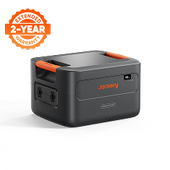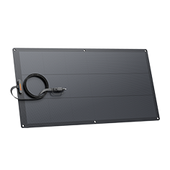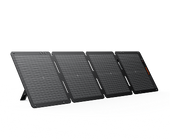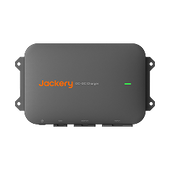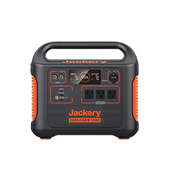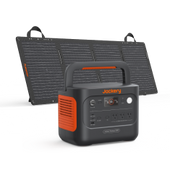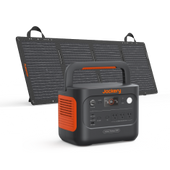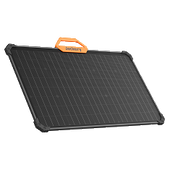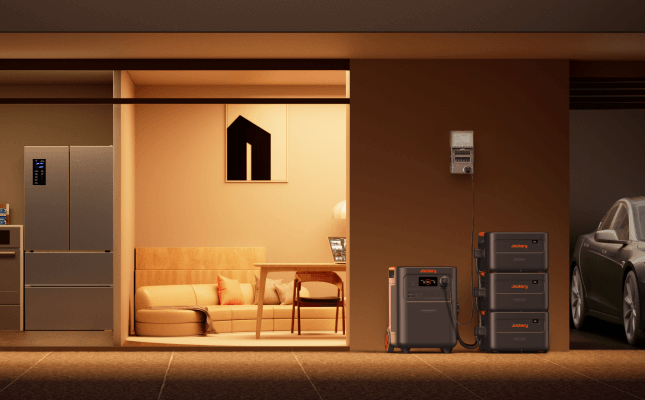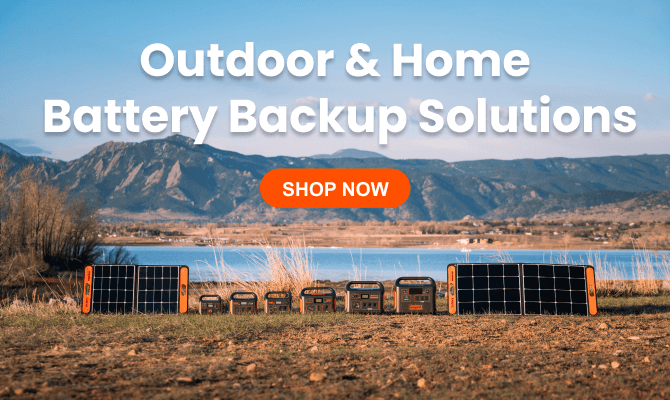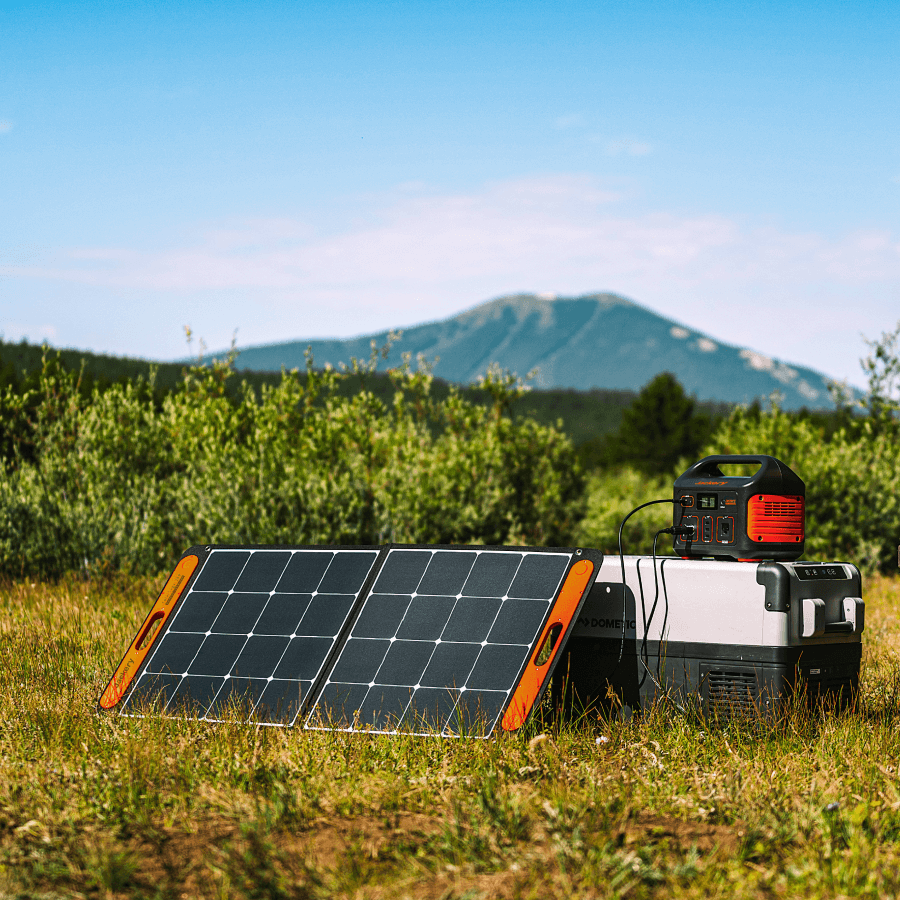Solar panels require sunshine to operate and convert solar energy into electricity. Hence, many people often ask, "Do solar panels work in winter, on cloudy days, or at night?" Fortunately, there is a straightforward answer to this question. Solar panels operate in winter and on cloudy days only if there is sufficient sunlight available. However, if the cloud covers the atmosphere and there is no sunlight, solar panels won't function.
Similarly, as there is no sunlight available at night, solar panels do not generate any electricity during that time. For this reason, it is better to invest in solar panels and a battery backup. The excess solar energy generated by the panels can be stored in the power station to ensure appliances remain powered during the night, on cloudy days, or in winter months with no sunlight. Read the comprehensive guide to learn more about solar panel output.
Takeaways
- Solar panels can function effectively on cloudy days and in winter, as long as sufficient sunlight is available. However, the answer to "Do solar panels work at night?" is a complete no because there is no sunlight available at night.
- You need to invest in a battery backup system to store the excess electricity generated by the solar panels during the day, allowing you to keep essential appliances when sunlight is not available.
- Jackery SolarSaga Solar Panels combined with Jackery Portable Power Stations can ensure you get a consistent solar power supply for powering essential indoor or outdoor appliances.
How Solar Panels Work

Unlike what most people think, solar panels work by absorbing the sun's light and not the temperature. So even if the temperature outside is cold, solar panels will still be able to generate power.
Let’s understand how does solar energy work: Solar panels convert sunlight into electricity using photovoltaic cells, which absorb the sun’s light and turn it into direct current (DC) power. This DC power can then be converted into alternating current (AC) by Jackery portable power stations for our homes or businesses.
This process is known as the photovoltaic effect. It starts with sunlight hitting the photovoltaic cells, which are composed of materials that create an electric field. When a photon from the sun’s light hits this electric field, it creates an electron flow or current. This current is captured and stored for use as electricity.
Solar cells come in different shapes and sizes, but they all work the same way. They absorb the light from the sun and convert it into electricity.
So, even though solar panels can still generate electricity on cloudy days, they won't be as efficient as when there is direct sunshine because of the less sunlight available for them to absorb. Similarly, solar panels may also produce less energy in winter when the sun is at a lower angle in the sky and there are fewer hours of daylight.
To maximize your solar panel system's efficiency, you can use techniques such as optimizing the tilt angle and orientation of your panels to catch more sunlight or adding extra insulation to keep them warm on cold winter days. Additionally, some solar companies offer technology that can store extra energy generated by your system during sunny days, so you can use them on cloudy or winter days as well.
Do Solar Panels Work in Winter?

During the sunny days in the winter season, solar panels can gather energy by capturing light from the sun, just like any other season. Of course, you may not have as much sunlight available in winter due to fewer hours of daylight and the lower angle of the sun in the sky. But solar panels still generate some electricity on cloudy days or in winter by absorbing what light is available from the sun or stored energy, though the output will be low compared to that on a sunny day.
In fact, according to the US Department of Energy, solar cells perform better at low temperatures, as higher temperatures can cause a slight increase in current but a much larger decrease in voltage. To maximize your solar panel system’s efficiency during the sunny days in winter, you can optimize the tilt angle and orientation of your panels to catch more sunlight or add extra insulation to keep them warm on cold days. Jackery solar panels contain an adjustable bracket for catching direct sunlight.
Do Solar Panels Work on Cloudy Days?
It’s a common myth that solar energy isn’t useful during colder months, but do solar panels work in winter? Yes, they do, and often with improved efficiency in cooler temperatures, as the DOE report mentions. On cloudy days, solar panels still generate electricity by capturing whatever light is available from the sun. However, it’s important to note that cloudy days can greatly reduce the amount of energy produced by your system due to less sunlight being available for them to absorb.
You can make your system more efficient on overcast days by adjusting the tilt angle and orientation of your panels to capture more sunlight or adding extra insulation. Then, you can store the extra energy generated by your system during sunny days and use it on cloudy or winter days.
How Effective Are the Solar Panels on Cloudy or Snowy Days
Compared to sunny days, solar panels work less efficiently on cloudy days. This is because the intensity of sunlight is lower on cloudy days than on sunny days, ultimately reducing the solar panel output. Snow can drastically reduce the solar panel's efficiency as it can physically block sunlight and reduce the amount of light that reaches the panel. Similarly, the cold temperature associated with snowy days can affect the panel performance.
Do Solar Panels Work at Night? Limitations and Storage Options
No, solar panels cannot work at night, and they cannot generate electricity. However, you can use a portable power station to store extra energy generated by your panels during the day, so you can use the electricity to charge appliances at night.
Jackery Solar Generators combine solar panels and a compatible power station. The solar panels can convert sunlight into electricity when there is sunshine and store the energy in the power station. You can plug the appliances into the output ports of the power stations to keep them running when there is no sunshine.
Efficient and Portable Jackery Solar Panels

Jackery SolarSaga Solar Panels are optimized with advanced technologies like MPPT (Maximum Power Point Tracking) and Smart Solar Technology, which allow the panels to capture maximum light from a wide range of angles and directions. This makes them ideal for use in different environments, whether you need solar energy for your home, RV, or boat. However, the output can vary significantly on cloudy days. Hence, it is important to place the panels under the direct sunlight to generate power.
Jackery SolarSaga 40W Mini Solar Panel
If you often plan hiking or short camping trips, you'll appreciate the ultra-lightweight Jackery SolarSaga 40W Mini Solar Panel. It weighs just 2.6 lbs and has a four-fold design, which makes it lighter than a laptop. It features two USB output ports, allowing you to power two small devices, such as cameras, laptops, or phones, directly. It has an efficiency of 23% and can be paired with the Jackery Explorer 300 Plus Portable Power Station to build a solar-powered generator for outdoor adventures.

Customer Review
Used it for friends' airbeds during camping. It lasted for 2 days, charging multiple phones, tablets, and rechargeable lights. Highly recommended!
— Aubrey Panganiban.
Jackery SolarSaga 100W Solar Panel
The Jackery SolarSaga 100W Solar Panel is a foldable, portable, and bifacial solar panel that has an efficiency of 24.3%. It features adjustable kickstands, allowing you to adjust the tilt and angle of the solar panels to maximize sunlight absorption. It also features two USB ports to power two small devices, like phones and laptops, directly. You can pair the solar panels with a compatible Jackery Portable Power Station to power larger appliances such as refrigerators, space heaters, etc.

Customer Review
I love these solar panels! There are two USB ports that can be used while charging the Jackery. A zipper pocket on the back holds the charging cable and any adapters right where you need them. They are easy to carry, and a damp cloth keeps them clean.
— Caroline Castle.
Jackery SolarSaga 100 Prime Solar Panel
If you are someone who prefers off-grid living in a camper or RV, you can consider investing in the Jackery SolarSaga 100 Prime Solar Panel. It can be installed on the rooftop of the RV or camper to absorb the sunlight that falls on the panels and generate electricity. It is 23.4% efficient and is compatible with the Jackery Explorer 1000 Plus Portable Power Station. You can keep essential outdoor appliances powered, such as outdoor grills, lights, speakers, TVs, etc.

Customer Review
I mounted two of these SolarSage 100 Prime solar panels on the shed in my backyard. They work very well. I was impressed with the build quality (frankly the best solar panel I've ever touched) and the ease of installation.
— Lief Larson.
Jackery SolarSaga 200W Solar Panel
The Jackery SolarSaga 200W Solar Panel is 24.3% efficient and features adjustable kickstands that allow for optimal tilt and orientation to maximize sunlight absorption. It can be paired with compatible Jackery Portable Power Stations to power essential appliances during outdoor travel or home backup. For example, if you need a home battery backup solution for brief outages, you can consider the Jackery Solar Generator 2000 Plus bundle.

Customer Review
Absolutely love solar panels and generators. I camp in the trees, so it took a bit more solar capacity than someone who camps in full sun, but it's so worth it.
— Tab Barnard.
Jackery SolarSaga 500X Solar Panel
If your goal is to build an essential home backup solution that can keep critical household appliances powered for extended periods, you can consider investing in the Jackery SolarSaga 500X Solar Panel, which can be paired with the Jackery Explorer 5000 Plus Portable Power Station. It is 25% efficient and has a portable design that ensures easy transportation. It features an IP68 waterproof rating, making the solar panel ideal for various outdoor conditions.

Customer Review
Picked this up for our camping outing to power our ARB fridge. Once we got it home, we found all types of things we could use. We were building a pergola, and instead of dragging all of the extension cords around, I just set the Jackery up and set the solar out.
— Robert H.
How to Maximize Solar Performance in Cold Weather
While energy output may be slightly lower due to shorter days, the answer to do solar panels work in winter is a definite yes. However, during cold weather, the days are shorter, and sunlight is less intense, which can negatively impact how efficient solar panels are. With a few simple steps, you can optimize solar panel performance even in the coldest months.
- Tilt Your Panels: On winter days, the sun tends to be a lot lower. You need to tilt the solar panels at a higher angle so they generate maximum electricity during sunny hours.
- Regularly Clean the Panels: If you've rooftop solar panels, they can accumulate snow, ice, and dirt. It can reduce the efficiency. It's essential to keep the solar panels clean to ensure proper absorption of sunlight during the colder months.
- Optimize Battery Storage: Winter days are shorter, and there are fewer hours of sunlight. Investing in a battery storage system along with solar panels can ensure a consistent power supply. The electricity generated during the day can be stored in batteries and used when there is no sunshine.
FAQs
Do solar lights charge on cloudy days?
Yes, solar lights with panels can still charge on cloudy days, though with reduced efficiency compared to sunny days. The charging process may take longer due to the low sunlight intensity, and the battery might not reach full capacity as quickly as on a sunny day.
Do solar generators work on cloudy days?
Yes, solar generators work on cloudy days because they have a battery storage system that stores the electricity generated by the solar panels when sunlight is available. If the battery backup has stored electricity, solar generators will continue to run appliances.
Do solar generators work at night?
Yes. While solar panels don't generate electricity at night as they need sunlight to work, solar generators can still provide power at night by using the energy stored during the day. This stored energy can be used to power devices and lights.
Can solar panels charge on a cloudy day?
Yes, solar panels can still generate electricity even on cloudy days, although their efficiency is reduced because of less sunlight available. They can still convert both direct and indirect sunlight into electricity as long as the sunlight reaches the panels.
Conclusion
Many people wonder, do solar panels work in winter, and the good news is they absolutely do, as long as there’s sunlight. But it’s important to remember that solar panels need direct sunlight to generate electricity. During cloudy days or during winter, you can optimize your system by adjusting the tilt angle and orientation of your panels or adding extra insulation. Solar batteries can also help store extra energy generated during sunny days, so you can still use your solar energy system when it’s dark outside.
Jackery SolarSaga Solar Panels have an efficiency between 23% and 25% to maximize the conversion of sunlight that falls on the cells. They can be easily paired with Jackery Portable Power Stations that can act as an essential home backup solution for powering most household appliances. The power stations store the electricity generated by solar panels to keep essential appliances running during outages, at night, or even in winter.
Subscribe to our newsletter and follow us on social media to stay up-to-date with the latest Jackery news and products.

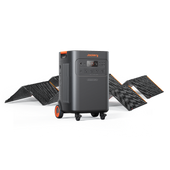












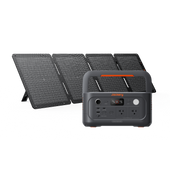



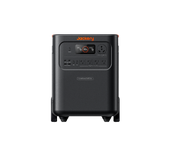
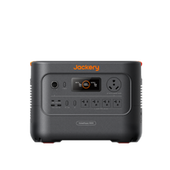






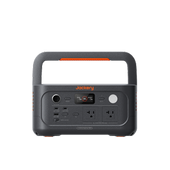





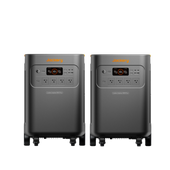
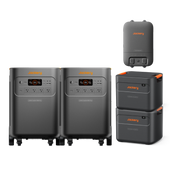





![[Add - on] Jackery Manual Transfer Switch for Explorer 5000 Plus - Jackery](http://www.jackery.com/cdn/shop/files/add-on-jackery-manual-transfer-switch-for-explorer-5000-plus-9017324.png?v=1754016782&width=170)
